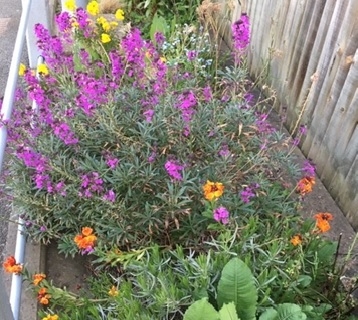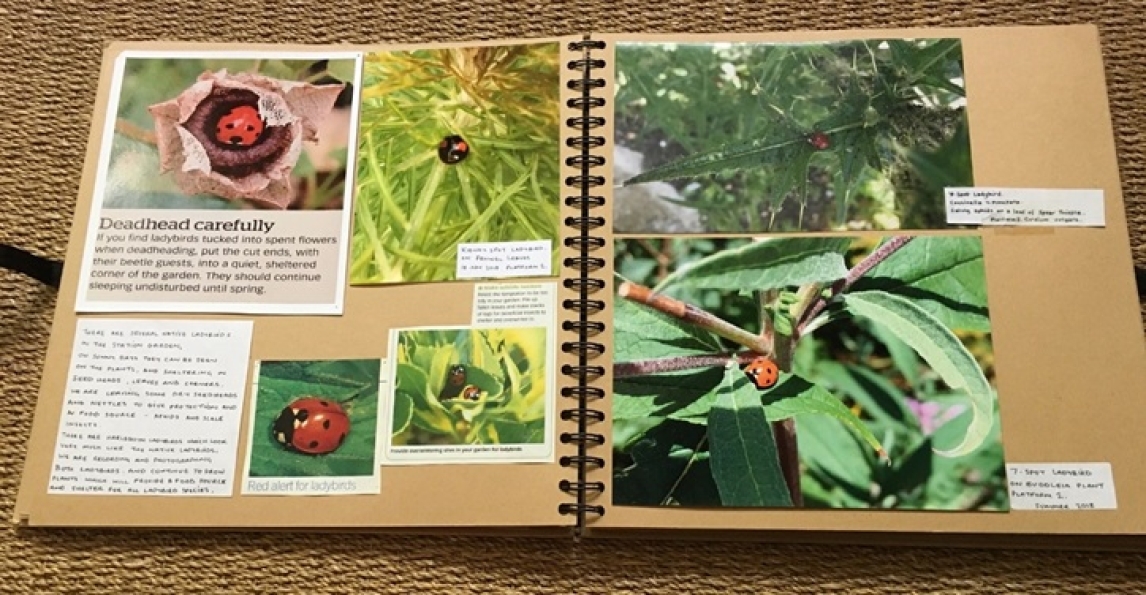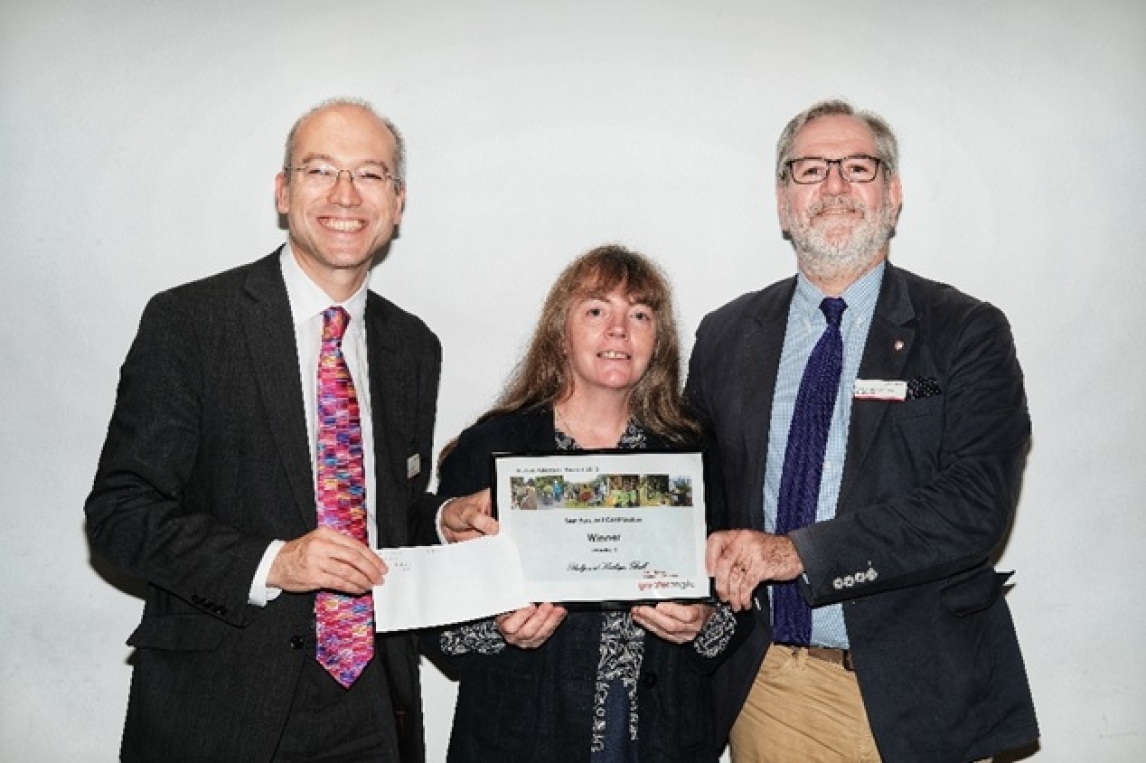Published on: Thursday, 25 June 2020
Last updated: Thursday, 25 June 2020
Two volunteers have transformed Shelford rail station in Cambridgeshire into a wildlife haven through their unique and dedicated approach to nature gardening, which is helping to record and protect local wildlife.
Since becoming ‘station adopters’ for Greater Anglia Philip and Kathryn have tended the station garden and kept detailed records of all the plants - including the wild ones - and observed the impact that they have on butterfly and moth populations and other wildlife.
The records and photography are then displayed in the waiting room for all to see, submitted for insect population surveys.
Kathryn explains, “We took over the trowel from Ron Gooch, the previous adopter who loved the station and had created a lovely garden, I often helped him identify fungi and wildflowers. Since we took over in 2016, we have planned and managed the wildlife garden at the far end of Platform 2.
Kathryn and Philip share their ideas and record and photograph any wildlife seen on the station.
She adds, “The plants in the station garden, pots and containers are chosen to provide a food source and shelter for insects and their larvae, they are checked daily during watering to record insects and any wildflowers. The observations are submitted for Butterfly, Moth and Ladybird surveys.”
Across Greater Anglia’s network many other station adopters are also making their rail stations more wildlife friendly – with the railway increasingly being recognised by ecologists as a ‘green corridor’ which provides a sanctuary for many different kinds of flora and fauna.
In a recent survey, Greater Anglia station adopters reported a wide range of creatures visiting their stations including many different types of butterflies as well as bees, slow worms, bats, foxes, hedgehogs, deer and many varieties of birds.
Some of them are becoming really magical places as a result, helping to support rare types of wildlife and benefiting their communities by helping to improve the local environment and existing more harmoniously with their rural surroundings.
Kathryn says, “We don’t mind if the plants are eaten by caterpillars, or we find the leaves curled into nests, it is rewarding to provide an undisturbed insect habitat which also provides interest for train passengers.
“During the present-day ‘lockdown’ it is a colourful haven for local people to enjoy and sit quietly, away from the home environment. Last year during the warm weather we noticed office workers sitting on the station benches eating their lunch.”
Kathryn and Philip painstakingly record their observations and photographs in a beautiful ‘Nature Diary’ which is kept on display in the station waiting room for people to view.
Kathryn says, “Looking after the station garden has improved our knowledge of insect recognition and habitats for local wildlife. Also, it has provided a useful distraction during lockdown, allowing us to take regular exercise along the platforms, yet staying near to our house. Due to lockdown travel restrictions, this year we have grown several of our plants from seed and from cuttings of plants from previous years.”
Their future plans include a project to develop a plant habitat on Platform 1 to encourage moths which visit the station at night, attracted by the platform lights.
Kathryn and Philip’s efforts, along with other station adopters across the network, are helping the railway in East Anglia to lead the green revolution by being a much greener way to travel - and Greater Anglia’s new fleet of trains will contribute even more thanks to their more environmentally friendly features which reduce CO2 and particulate emissions in the region further still.
Greater Anglia’s Station Adoption initiative sees local people across the network get involved with their local stations to come up with ideas and projects that benefit their communities.
#ThankYouThursday





